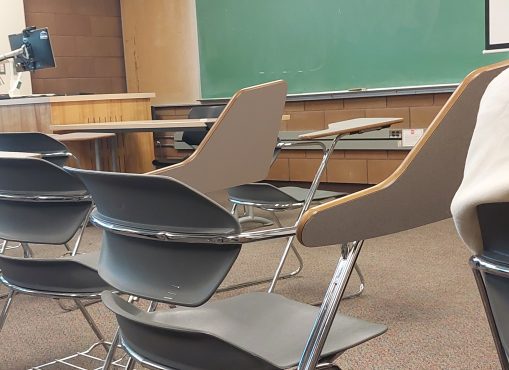How to become BFFs with your professor
Approaching your prof may be intimidating, but it could lead to success

Photo of She Douglas Fish.
Making new friends is one of the building blocks of a good university experience. Students heading toward graduation tend to have a core group of friends or a sense of camaraderie on campus — and by this point in the semester, most first graders have had the opportunity to make friends through classes, clubs, or other parties . But the most overlooked friendship might be with your professor.
Building a relationship with a professor is one that can foster growth and success in your academic and professional life. Many students may be reluctant to make such contacts or may not know how to approach their professors. Building this relationship requires some effort on the part of the students.
dr Michael Reed, Professor of Medieval Studies here at UVic, explains that coming to office hours is an easy way to get to know your professor.
“50 percent, if not 60 percent, of my students never come to the office hours,” he says, adding: “The office hours are a wonderful time to introduce yourself, especially at the beginning of the year.”
Reed emphasizes the importance of visiting your professor while he’s in his office, and also says that taking multiple classes with the same professor can aid in this process.
“When you take multiple courses with that person, you’re engaging with that person in different contexts…You see different facets, different nuances of that person. And it’s just a question, the longer you spend with someone, the better you get to know them.”
This strategy is also often conducive to better grades and success in general because “you know what to expect,” Reed says. This is crucial as essay and project requirements vary from professor to professor and a better understanding of teaching style and expectations will set you on the right path.
Additionally, building rapport in this way can lead to future references for graduate school or employment. According to Reed, a strong personal relationship with a professor is required for a reference, as students can often be turned down.
“Most people are too polite to say ‘no, I won’t provide the reference,'” he says, adding, “if the student gets a message from the professor that isn’t an immediate yes, maybe ‘I am very busy’ or ‘I don’t know you well enough’, drop it like a lead fish.”
There are many reasons a professor might not reciprocate your efforts to build a relationship. Reed says the professors hesitate because “if [they] are too friendly, it might be misconstrued as something inappropriate.” Students should bear this in mind. A professor must be addressed in a professionally and scientifically appropriate manner.
In addition, it is also important to know the pronouns and the title of the professor.
“Check your syllabus, check the emails you get from your professor, see what his signature line is,” says Reed. This is a simple thing to watch out for, and it can change a professor’s attitude towards you.
Finally, Reed believes finding interests outside of the course can help build a relationship. It can be games (Reed specifically said “game D&D”), music, sports, etc. Finding interests outside of the course would expand the relationship from pure course material.
Becoming friends with your professor may seem like a daunting task, but this is a great student plan to start with. This advice could help improve your grades or give you a shining reference later in life.
If you have a professor you like and realize you have similar interests, approach them professionally and take the time to introduce yourself during their office hours. This is especially recommended if you know you will encounter them again later in your studies. If their office hours don’t work for you, many professors are willing to arrange a meeting at a different date and time.
So don’t be afraid to ask, because you could miss out on some of the most lucrative friendships the campus has to offer.